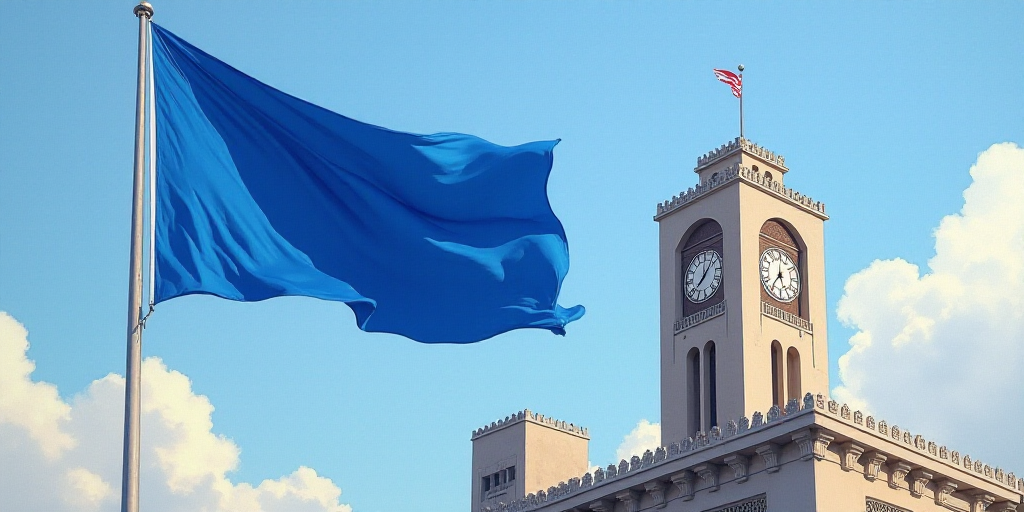The UN at 80: A Necessary Platform for International Diplomacy
As the United Nations (UN) marks 80 years since its creation, it remains an indispensable platform for international diplomacy. However, analysts agree that the organization must reform and adapt to the new geopolitical equilibrium.
Key Figures and Their Perspectives
Pía Taracena Gout, an international affairs analyst, highlights that the UN has successfully fulfilled its primary mission of preventing another world war. Nevertheless, structural challenges necessitate urgent reform, particularly in the Security Council and its veto system.
“The UN has served its main objective of preventing a world war so far. However, some heads of state are not on the same page. The success depends on the capacity and willingness of all nation-states to adhere to their commitments and accept the UN’s parameters for better functioning,” Taracena, also an academic at the Universidad Iberoamericana, explained.
She emphasized that despite criticisms, “without this multilateral space where everyone can voice their opinions, the world would be much more chaotic.” The UN plays a central role in international cooperation through institutions like the General Assembly, ECOSOC, and UNESCO, which support vulnerable populations through various programs.
Mónica Laborda Sánchez, another internationalist, pointed out that the UN, established in 1945 after World War II, needs updating to address current challenges and give greater representation to emerging actors like Brazil, India, or Mexico. Particularly in the Security Council, where its composition and veto system have hindered solutions in crises like Gaza and Ukraine.
“It’s not about saying the UN doesn’t work; it has achieved great things in 80 years. However, it’s crucial to adjust it to today’s times and geopolitical reality,” Laborda, a professor at the Universidad Panamericana, stated.
Gaza, Ukraine, and Multilateralism
Regarding the international agenda, Taracena noted a growing consensus around Gaza, labeling it as genocide, which has isolated Israel and the United States. Simultaneously, Russia’s invasion of Ukraine remains a central topic in global diplomacy.
Laborda highlighted that Foreign Minister Juan Ramón de la Fuente emphasized resolving global challenges through multilateralism, linking respect for international law with human rights defense and addressing the root causes of violence. She also pointed out that the UK recognizing Palestine as a state is highly symbolic, as it was the UK that supported the creation of Israel after World War II.
Both experts expressed disappointment over President Claudia Sheinbaum’s absence from the Assembly, which Laborda considered a “significant void” during a time when Mexico could have projected greater international leadership. “Not being present at the highest level is a massive void; it’s a missed opportunity to signal that Mexico doesn’t care about the world,” she asserted.
Taracena regretted missing the opportunity to participate in the “Parliament of Humanity” during the UN’s 80th anniversary, especially as the first female Mexican president. “The networking and bilateral relationships that could have been built were missed. It’s unfortunate that, despite being the first female president and combined with Mexico’s founding role in the UN, she didn’t seize this crucial moment,” Taracena said.
The academics suggested that the president could have presented a non-confrontational speech with Trump, emphasizing multilateralism defense.
In contrast to the presidential absence, both analysts acknowledged Foreign Minister De la Fuente’s experience and achievements in multilateral forums. Taracena considered positive the deposit of the ratification instrument for the BBNJ Agreement, a significant step in global environmental agendas. Laborda highlighted meetings with India, Switzerland, and the EU, discussing modernizing the global agreement with the EU, attracting foreign investment, and joint projects in democracy and human rights.
Taracena commented on former President Donald Trump’s speech, describing it as “incendiary” for discrediting the UN, denying climate crisis, and harshly criticizing migration. “He hit a nerve with explosive statements, attacking the UN’s values. His words endorse the ideological current that multilateralism doesn’t work,” she noted.
Laborda opined that Trump spoke to his base and national interests. “It was a terrible speech from a hegemonic power like the US, very arrogant and excessively critical. Trump boasted about his anti-migration policies in front of world leaders, denied the climate emergency, and questioned the UN’s purpose,” she said.
The Future of the UN and Female Leadership
Looking ahead, both experts agreed that the UN should embrace new voices and reflect current power balances. They emphasized the importance of having a woman, preferably from Latin America, as Secretary-General.
“It would be a significant change and strong support for the region, even if she doesn’t win. The mere candidacy would provide visibility and require regional solidarity,” Taracena commented.
Laborda recalled that De la Fuente highlighted in his speech that Mexico also supports the successor of Antonio Guterres being a woman, “hopefully from our region, as I understand by supporting Michelle Bachelet’s candidacy.”
The experts concluded that, despite its limitations, the UN remains the central forum for global diplomacy and an irreplaceable space for international governance.
Key Questions and Answers
- Q: Why is the UN’s reform necessary? A: The UN must adapt to the new geopolitical equilibrium, with structural challenges necessitating urgent reform, particularly in the Security Council and its veto system.
- Q: How have emerging actors influenced the UN? A: Emerging actors like Brazil, India, and Mexico require greater representation in the UN, especially in the Security Council.
- Q: What are the current global challenges discussed at the UN? A: Key topics include the situation in Gaza, Russia’s invasion of Ukraine, and climate change.
- Q: How has Mexico’s leadership been perceived at the UN? A: The absence of President Claudia Sheinbaum at the Assembly General was seen as a significant void, missing an opportunity for Mexico to project greater international leadership.
- Q: What is the significance of having a female Secretary-General? A: A female Secretary-General, preferably from Latin America, would be a significant change and strong support for the region, promoting visibility and requiring solidarity.






